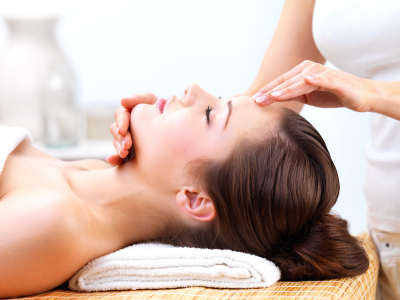 One of my all-time fave indulgences is going to the spa. To me, it’s heaven. It’s relaxing, it’s pampering, and it’s rejuvenating. Are you with me on this? Well, it gets better. Researchers are starting to discover that spa treatments have bona fide health benefits.
One of my all-time fave indulgences is going to the spa. To me, it’s heaven. It’s relaxing, it’s pampering, and it’s rejuvenating. Are you with me on this? Well, it gets better. Researchers are starting to discover that spa treatments have bona fide health benefits.
The origins of spa reach back to our earliest civilizations: ancient Egyptian, Greek, and Roman cultures (among others) regularly engaged in ritual purification and bathing in hot or cold springs. The practice of bathing in–and drinking–mineral waters for health and wellness has played a role in many societies. Health spas and resorts became a fashionable trend in the 17th and 18th centuries (think Bath, England). At various points in history, physicians routinely prescribed spa attendance and mineral bathing practices.
But somewhere along the way we’ve lost the health connection. North American spas today seem to focus on esthetics, pampering, and relaxation. But not exactly on preventive health or medical treatment, per se. In contrast, European spas have retained the health aspect. In fact, spa treatments are often covered by the national health insurance plan in France. (Sigh. Yet another reason to come back to this life re-born as a French woman, no?)
Anyway.
For years, I’ve believed there are true physical & health benefits to be gained at the spa. Didn’t matter to me that we hadn’t quite “measured” it yet. That there wasn’t sufficient evidence to prove it. (Beyond the thousands of years of use, that is)
But now—turns out, a little research is starting to stack up showing health benefits of various spa treatments.
‘Bout time, I say.
So what are the studies showing?
A recent study compared groups receiving deep-tissue massage vs. light massage, taking blood samples before and after the massage. Participants with deep-tissue massage had post-treatment decreases in cortisol levels (a key stress hormone), and increases in white blood cells (important for the immune system). This might indicate a role for massage in treating inflammatory and autoimmune conditions.
Another study looked at the effect of massage on women with breast cancer. Following massage, the women showed improved scores in a perceived stress questionnaire and had lower serum cortisol levels.
Massage has also been shown to benefit people in the workplace. In one study, the group that received workplace-based massage therapy had significant reductions in blood pressure than those who didn’t get massages.
A recent French analysis of research on spa therapy and hot-water balneology (the therapeutic use of mineral baths), unearthed several small studies showing benefit for the following conditions:chronic low back pain, rheumatoid arthritis, ankylosing spondylitis, fibromyalgia, and osteoarthritis.
Reflexology has been shown to decrease PMS symptoms in women.
Aromatherapy has been shown to improve insomnia and depression among female college students.
Anyway…I could go on, as this is just a sampling of the research that’s beginning to surface.
A day at the spa because it’s good for me? Bring. It. On.






